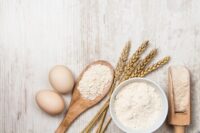There is general belief that economic growth means improved welfare, as long as the inflation is under control.
The latest inflation data shows a decline overall, which is encouraging.

As for food (soft commodities), the inflation figure does not differ much, i.e. at 2,51% YoY. Food is a necessity, no argue about that. Good GDP, account surplus, etc. are deemed useless for most without food security at the core of daily life.
What constitutes food security? Is it just about inflation?
The Worldbank states food security in 4 (four) dimensions.
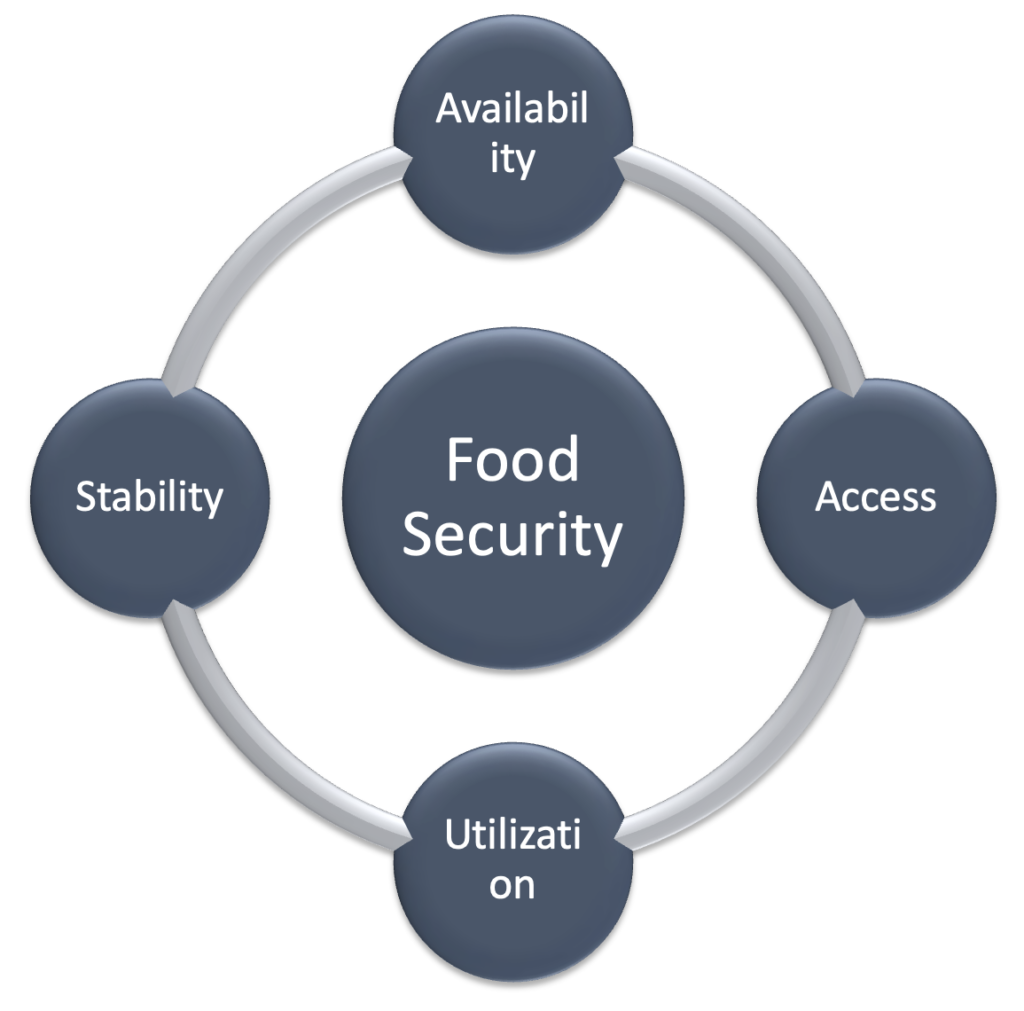
Availability
As the population climbs over 270 million people, more food is needed. Self-sufficiency (“swasembada”) is vital.
Essential to food production are water, sun, and good soil. The country’s tropical climate all makes it more than possible to be self-sufficient, if managed well.
In 2022, the value of Agriculture, Forestry, and Fishing products account for 12,4% of GDP. However, its growth lags the growth of GDP per capita.
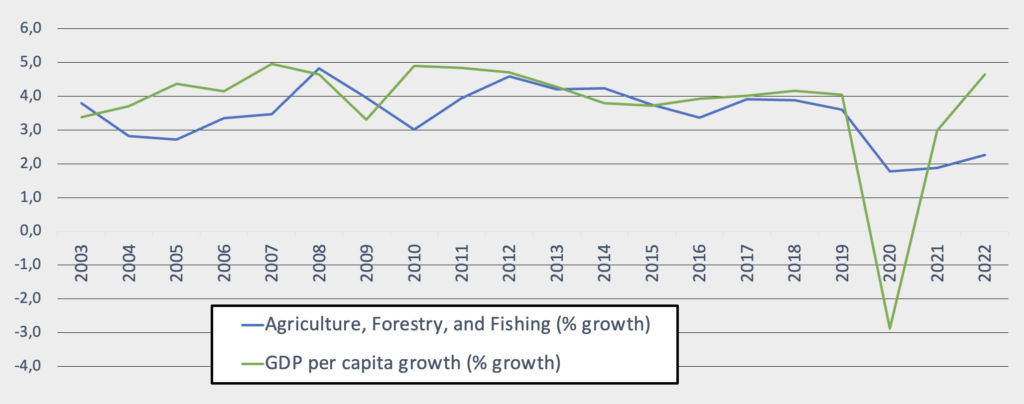
Access
Food availability does not necessarily mean it is accessible for most people, especially the low-income families.
The latest data shows that rice, sugar, and chili are main contributors to the inflation. Notably, rice inflates by 5,61% MoM.
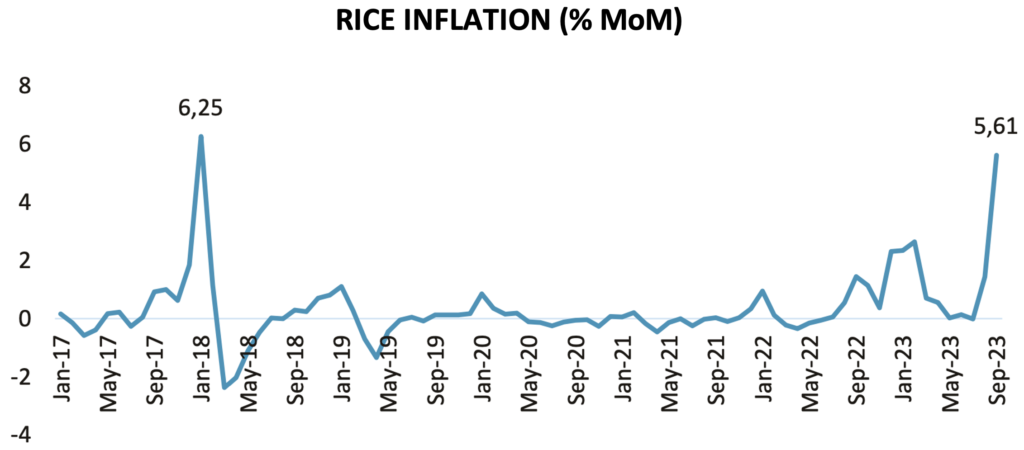
Comparing the inequality in per capita calorie intake (2020), the spread of access to foods in the country is quite good, although there is still some way to reduce the inequality.
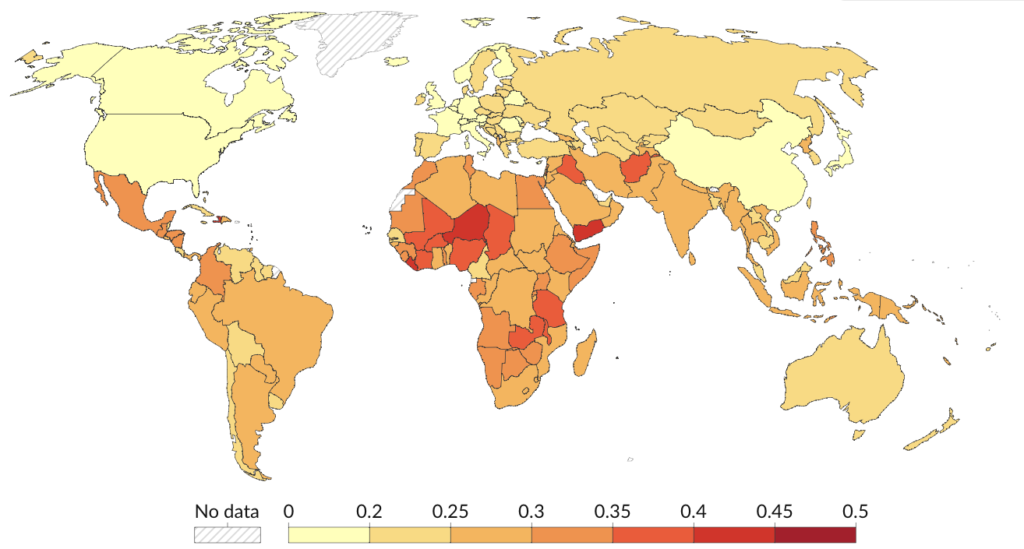
Utilization
One main issue that less-privilege families has been facing is stunting and wasting, i.e. impaired development that children experience from chronic malnutrition.
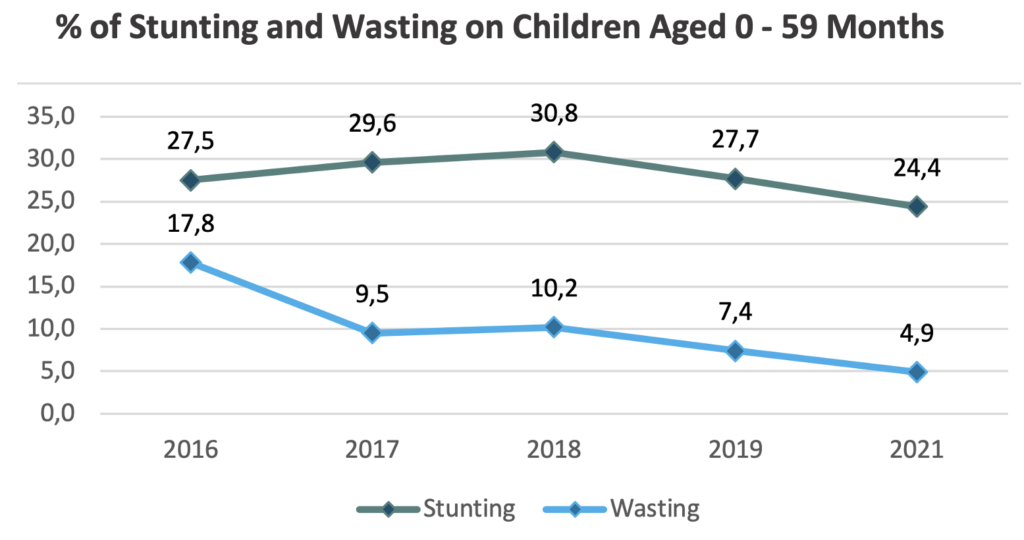
Another area that needs to be addressed is food hygiene (storage and preparation). In 2021, around 31% of health issues [non-natural] were caused by food sickness (poisoning).
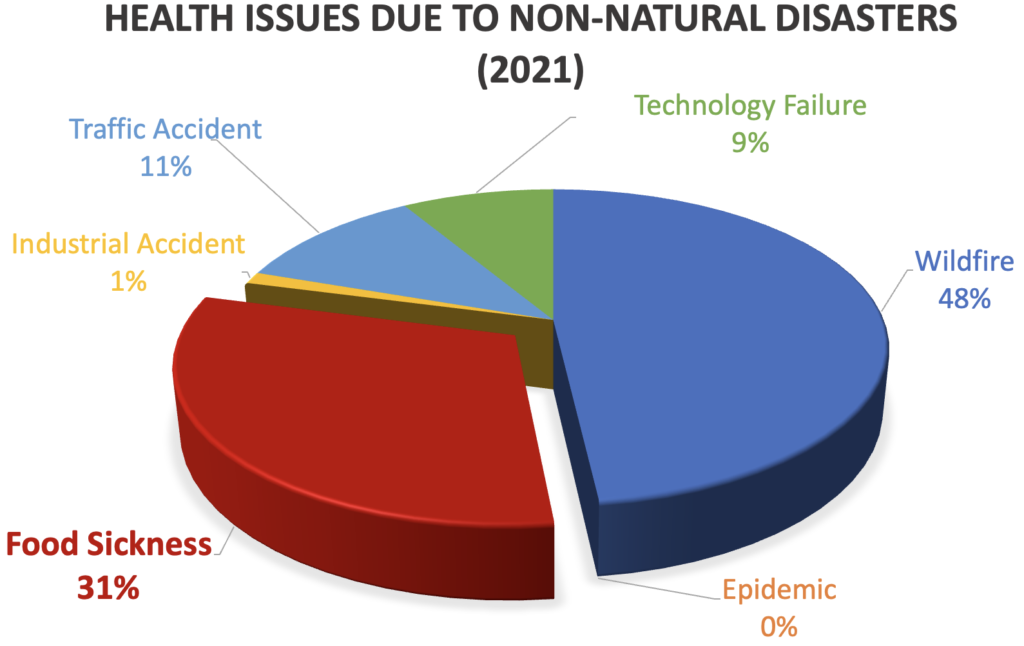
Stability
Steady supply will ensure that food is always readily available, hence minimizing the price fluctuations.
Some crops are seasonal. For instance, rice production depends heavily on rainfall season.
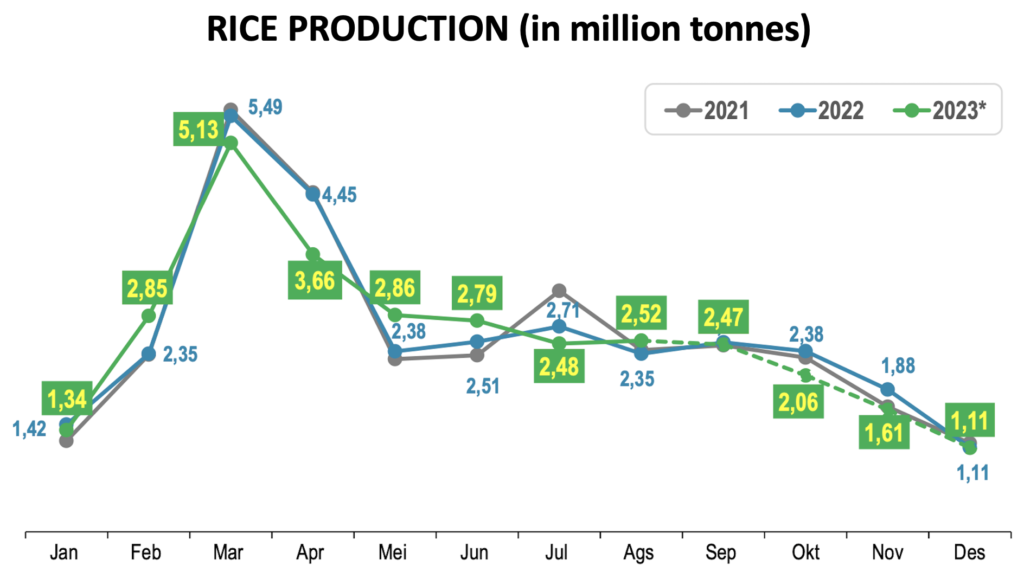
As such, the deficits must be covered by imports to match the required stock level until the next rainfall season.

Recent geopolitical tension and El-Nino events have not helped either, leading to crops failures.
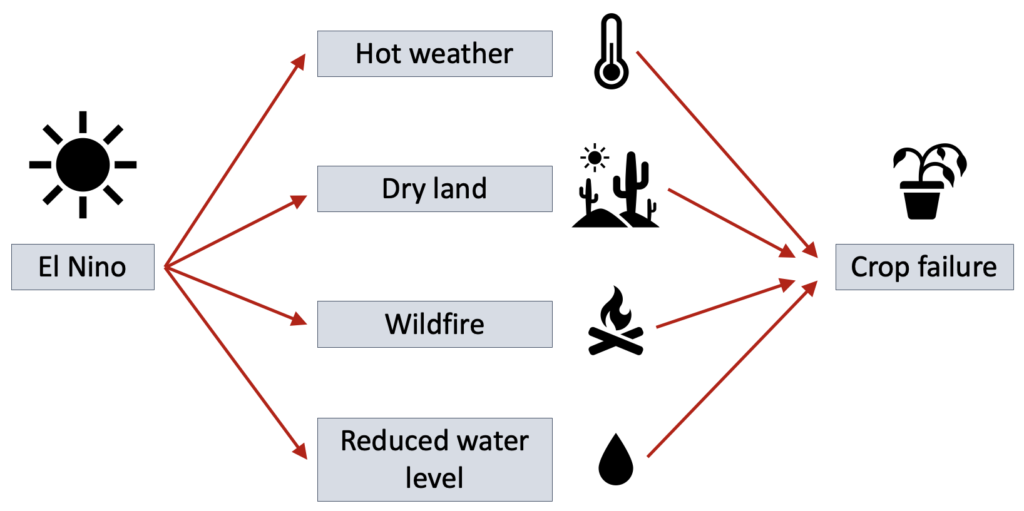
Expect more challenges in years to come concerning food security globally and locally. Preserving current situation is tough, let alone improving it.
Disclaimer: NOT FINANCIAL / INVESTMENT ADVICE. This article is of writer’s personal opinion. Any information contained here is for education and informational purpose only. Readers should seek other sources or professional advice for further clarification where deemed necessary.

